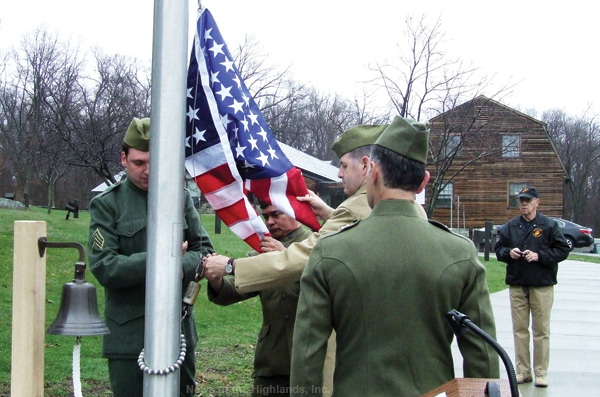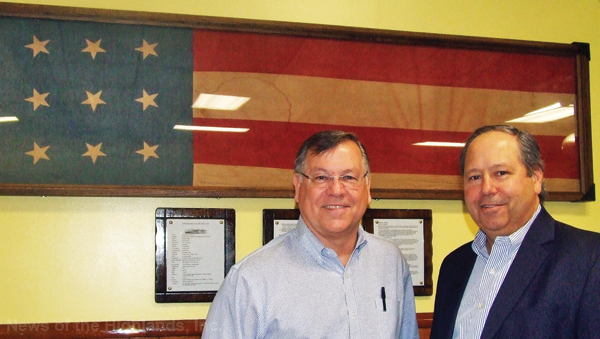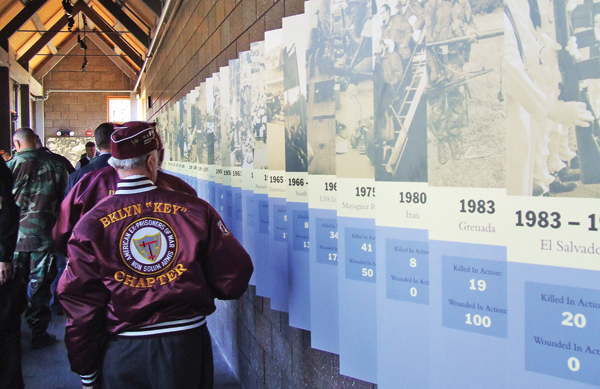
A small group of veterans and public officials attended a program at the National Purple Heart Hall of Honor to commemorate the 100th anniversary of the United States’ entry into World War I.
As if mimicking the conditions on that date in 1917, a light rain fell last week and the temperature hovered just above 40 degrees Fahrenheit. The program, however, started about two hours prior to the actual time when the House of Representatives voted 353-50 to support a declaration of war against Germany.
Two days earlier, the Senate had done the same by an 82-6 vote.
The outdoor portion of the program concluded with the raising of an American flag, with 48 stars. A bell was tolled four times representing the natives of Newburgh and New Windsor, Orange County, New York State, and the nation who lost their lives in WWI.
The Great War actually started on June 28, 1914 with the assassination of Archduke Franz Ferdinand and his wife, Sophie. Within a month, Austria-Hungary had declared war on Serbia, thus starting the domino effect that caused peace to crumble in Europe.
Germany sided with Austria-Hungary and Great Britain sided with France and Russia. The United States remained neutral, but continued to supply Great Britain with food and munitions. Germany took exception to this and began attacking merchant ships with submarines.
On Feb. 3, 1917, the U.S. broke off diplomatic relations with Germany. A month later, Germany sought support from Mexico, promising to give back land the country had lost in the Spanish-American War.
The first boots landed in France in June.
Locally, the First New York National Guard had a presence in Newburgh before being activated, in the winter of 1917, and sent to guard the water supply in New Paltz. They later combined with the 7th Silk Stocking Fellows and became the 107th regiment.
In New York City, black National Guardsmen from the 15th New York became the 369th Infantry Regiment and became part of the French Army’s 161st Division. The “Hell Fighters,” as they became known, were directly involved with the Hindenberg Line assault.
The program concluded with the singing of “Over There” by George M. Cohan. It was a patriotic song designed to entice young men to enlist in the army and fight the “Hun.”



